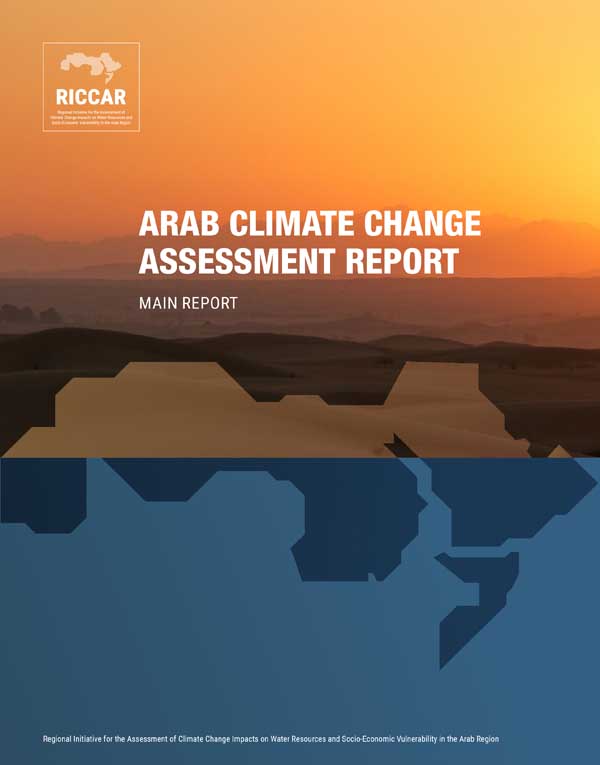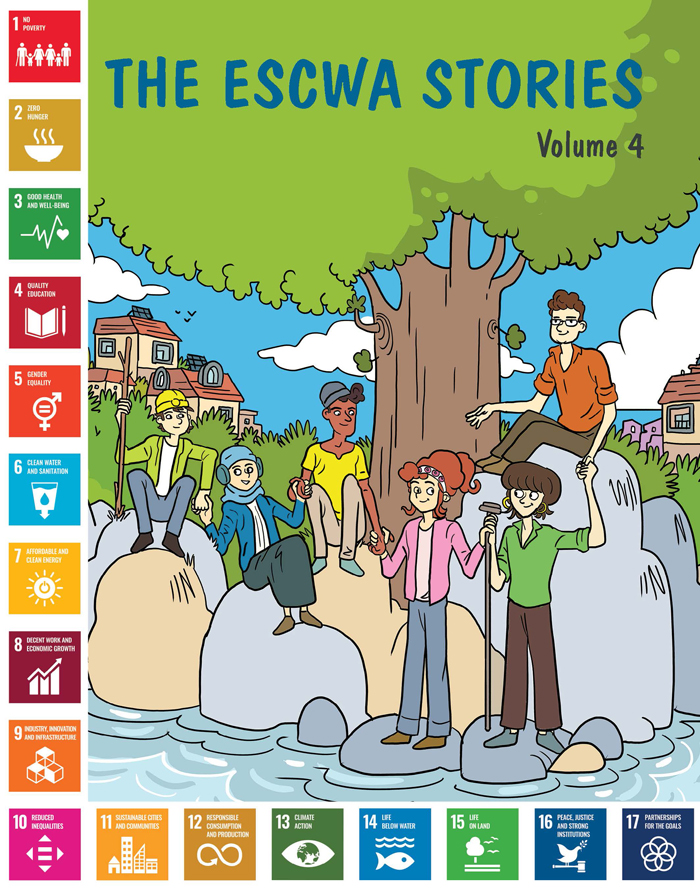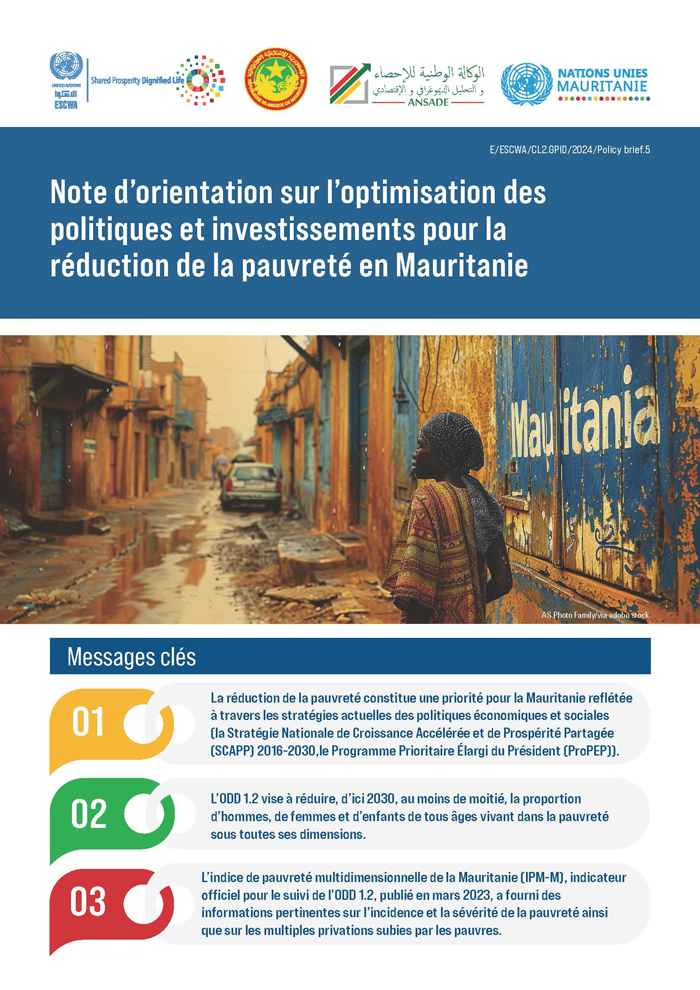
ESCWA Publication: E/ESCWA/SDPD/2017/RICCAR/Report
Country: Arab region
Publication Type: Reports & studies
Cluster: 2030 Agenda and SDG Coordination
Focus Area: Climate change, Natural resource sustainability
Initiatives: RICCAR, Arab Centre for Climate Change Policies
SDGs: Goal 2: Zero Hunger, Goal 6: Clean Water and Sanitation, Goal 11: Sustainable Cities and Communities, Goal 13: Climate Action, Goal 15: Life On Land
Keywords: Sustainable development, Climate change, Social aspects, Environmental aspects, Precipitation, Temperature, Water resources development
RICCAR Arab Climate Change Assessment Report
January 2017
The Arab Climate Change Assessment Report was prepared within the framework of the Regional Initiative for the Assessment of Climate Change Impacts on Water Resources and Socio-Economic Vulnerability in the Arab Region (RICCAR). The publication consists of a Main Report and Technical Annex.
The Main Report presents a comprehensive picture of the impact that climate change is expected to have on freshwater resources in the Arab region until the end of the century and how this will affect the vulnerability of water resources, agriculture, natural ecosystems, human settlements and people. Case studies findings examining flood frequency, droughts, crop productivity and human health are summarized in the report. These case studies are elaborated in technical reports that complement this main report.
The Technical Annex provides a comprehensive presentation of the maps used to support the analysis presented in the Main Report.
RICCAR is implemented through a collaborative partnership involving 11 implementing partner organizations, namely the League of Arab States, the Arab Center for the Studies of Arid Zones and Dry Lands (ACSAD), the Food and Agriculture Organization of the United Nations (FAO), Deutsche Gesellschaft für Internationale Zusammenarbeit GmBH (GIZ), the Swedish Meteorological and Hydrological Institute (SMHI), the United Nations Environment Programme (UN Environment), the United Nations Educational, Scientific and Cultural Organization (UNESCO) Cairo Office, the United Nations Office for Disaster Risk Reduction (UNISDR), the United Nations University Institute for Water, Environment and Health (UNU-INWEH), and the World Meteorological Organization (WMO), and is coordinated by ESCWA. In addition to the resources provided by the partner agencies, funding is provided by the Swedish International Development Cooperation Agency (Sida) and the German Federal Ministry for Economic Cooperation and Development (BMZ), which financially supports RICCAR through the Adaptation to Climate Change in the Water Sector in the MENA Region (ACCWaM) project.
Download the high resolution through the link provided above, or in four parts as listed below:
Related content
Climate change
, Natural resource sustainability
,
The Arab Climate Change Assessment Report was prepared within the framework of the Regional Initiative for the Assessment of Climate Change Impacts on Water Resources and Socio-Economic Vulnerability in the Arab Region (RICCAR). The publication consists of a Main Report and Technical Annex.
The Main Report presents a comprehensive picture of the impact that climate change is expected to have on freshwater resources in the Arab region until the end of the century and how this will affect the vulnerability of water resources, agriculture, natural ecosystems, human settlements and people. Case studies findings examining flood frequency, droughts, crop productivity and human health are summarized in the report. These case studies are elaborated in technical reports that complement this main report.
The Technical Annex provides a comprehensive presentation of the maps used to support the analysis presented in the Main Report.
RICCAR is implemented through a collaborative partnership involving 11 implementing partner organizations, namely the League of Arab States, the Arab Center for the Studies of Arid Zones and Dry Lands (ACSAD), the Food and Agriculture Organization of the United Nations (FAO), Deutsche Gesellschaft für Internationale Zusammenarbeit GmBH (GIZ), the Swedish Meteorological and Hydrological Institute (SMHI), the United Nations Environment Programme (UN Environment), the United Nations Educational, Scientific and Cultural Organization (UNESCO) Cairo Office, the United Nations Office for Disaster Risk Reduction (UNISDR), the United Nations University Institute for Water, Environment and Health (UNU-INWEH), and the World Meteorological Organization (WMO), and is coordinated by ESCWA. In addition to the resources provided by the partner agencies, funding is provided by the Swedish International Development Cooperation Agency (Sida) and the German Federal Ministry for Economic Cooperation and Development (BMZ), which financially supports RICCAR through the Adaptation to Climate Change in the Water Sector in the MENA Region (ACCWaM) project.
Download the high resolution through the link provided above, or in four parts as listed below:



